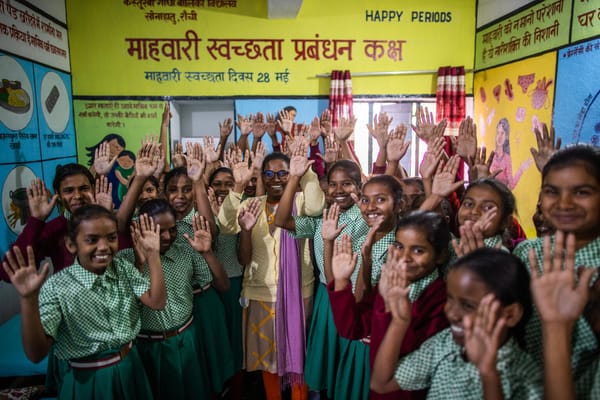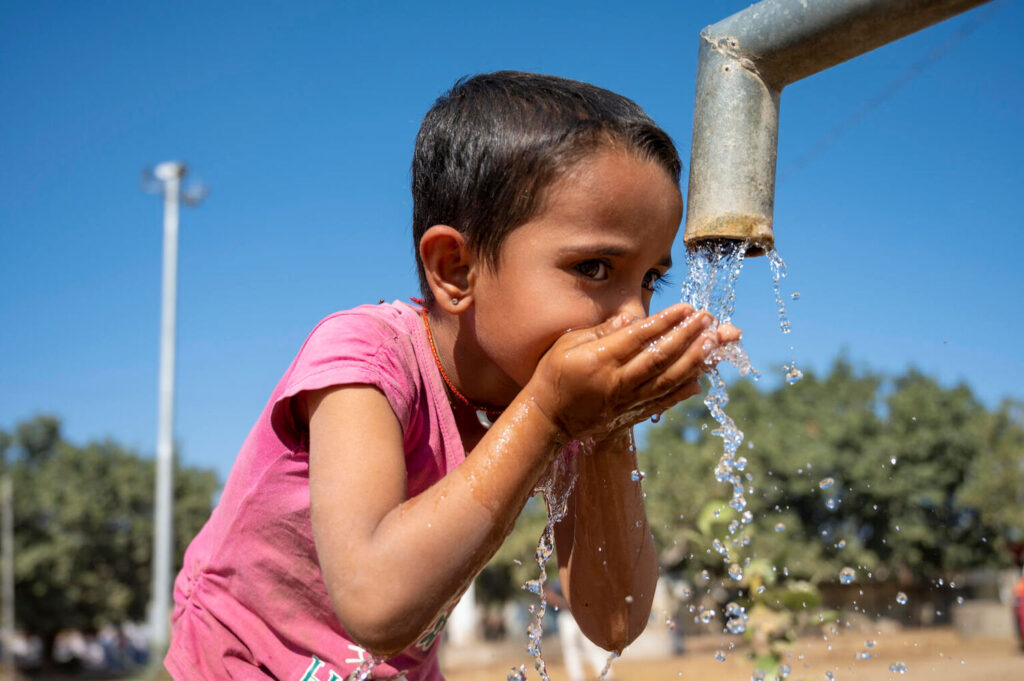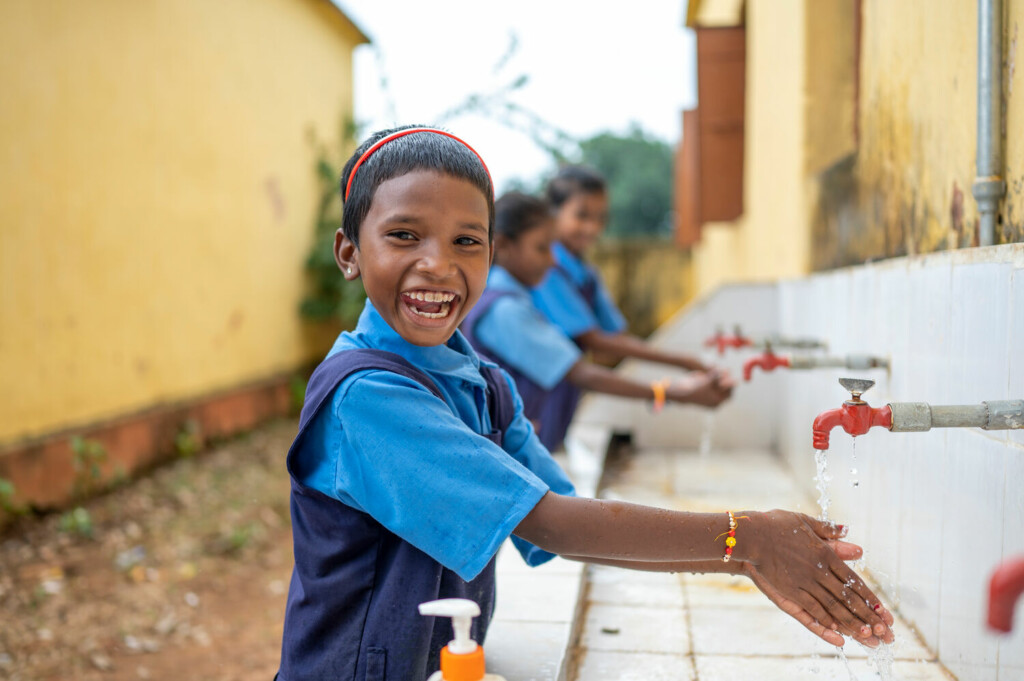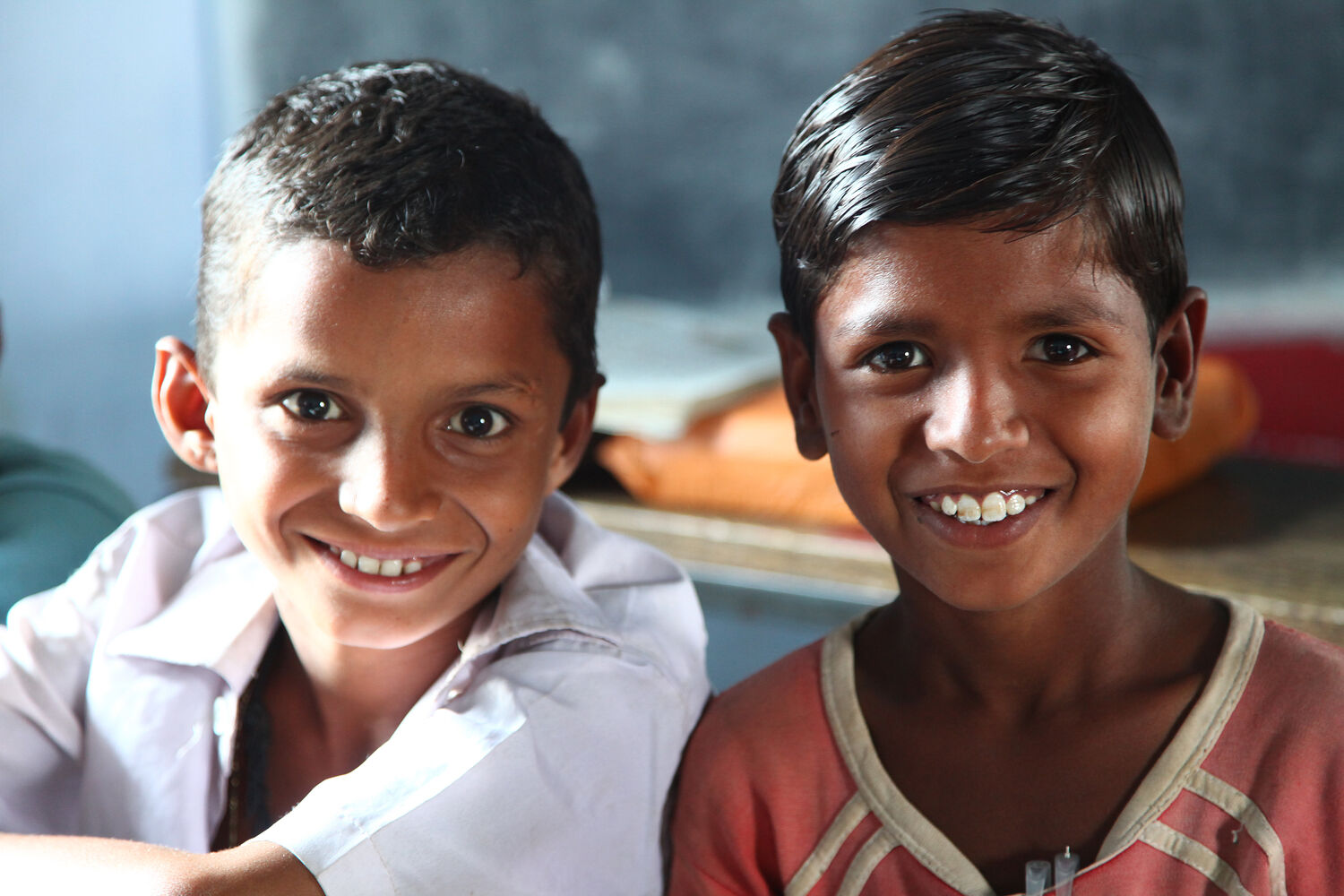
Tales of transformation: a UNICEF case study on plastic waste in India
The vibrant Indian cities of Rishikesh and Haridwar are located alongside the banks of the holy Ganga River. Every year, millions of devotees, and tourists flock to these spiritual centres. Yet, beneath the beauty of these cities lies a rising issue – the spread of plastic waste.
Plastic waste in India is a widespread problem, but Rishikesh and Haridwar feel its effects more than most. As their populations and tourism industries grow, the plastic waste struggles of these cities grow along with them. Much of the plastic waste ends up in public dumping spots or in the Ganga River.
According to a UNICEF case study on the plastic problem in Rishikesh and Haridwar , a major part of the problem is that people don’t separate plastic from their regular waste. In fact, 70% of households in Haridwar and 90% in Rishikesh use a single bin for all their waste disposal. Separating the waste at source would allow waste collectors to sort and recycle as much of the waste as possible.
To overcome the problem of so much plastic waste entering the environment in Rishikesh and Haridwar, an alliance of organisations is working together with municipal authorities to power an initiative called Project Aviral.
Challenges and collaboration: joining hands for a clean India
An important challenge facing India is maintaining a clean environment and effectively managing solid and liquid waste. The Water, Sanitation and Hygiene (WASH) programme was established to address this challenge, among many others. Lindström’s support of UNICEF in their India WASH efforts, such as their role in Project Aviral, is helping to promote a cleaner environment and improve the well-being of communities.
Project Aviral coincides with the Swachh Bharat (‘Clean India’) Mission – the Indian government’s plan to manage waste better. UNICEF is helping with this mission by supporting planning efforts, training people in new skills and monitoring progress. In 2022, this work helped more than 4.4 million people get toilets in their homes. Further, nearly 140,000 villages became free from open defecation, and over 6,100 master trainers received training.
Project Aviral is also connected to the UNICEF-supported Jal Jeevan Mission, which aims to ensure that people in rural areas have access to clean water. The mission also emphasises the importance of not letting waste go into vital water sources. Because of this effort, 20 million people now have good access to safe water.
As part of the Project Aviral initiative, UNICEF works with local governments and other key groups in Rishikesh and Haridwar. The goal of these collaborations is to improve waste management systems and educate local residents and tourists. They put a strong emphasis on sorting waste and promoting a litter-free environment.
It’s not just adults of Rishikesh and Haridwar who are shaping the future of these vibrant cities. Every age group is doing their part.
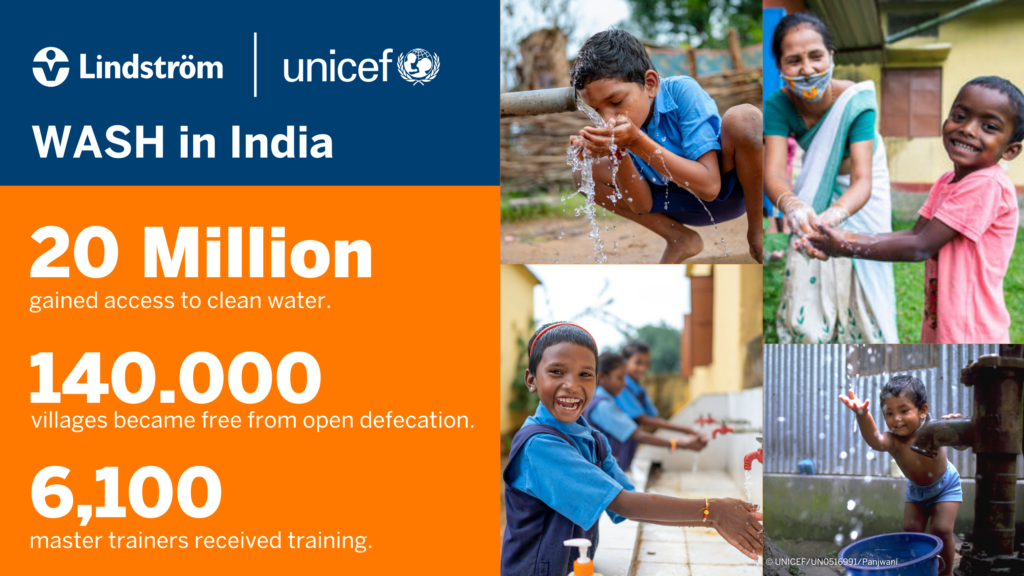
Champions for change: young leaders in Rishikesh and Haridwar
In Rishikesh and Haridwar, children and young people are stepping up to make a real difference. They’re not just simply doing their own small bit; they’re playing a major role in Project Aviral’s success.
For example, the students from DAV School in Haridwar have taken the lead in their neighbourhoods. These students understand the connection between a litter-free environment and a community’s well-being. They organise rallies and clean-up drives. They spread awareness about the problems of open dumping and mixed waste and try to ensure everyone does their part. They care about the health of waste workers and the safety of local animals, such as cows that sometimes eat plastic.
One student from DAV School told UNICEF, “We worry a lot. All this waste goes into our beloved Ganga through the drains. We’ve seen cows eating plastic bags with food on them. We knew about these problems, but we didn’t know how to tell everyone and make them aware. That’s when the Aviral team came to our school. They taught us about waste management and how to convince people to be responsible about their waste. Now, we’re sure our efforts will help people understand that we all have to work together to solve the waste problem in our city.”
These young environmentalists prove that education and youth involvement are powerful tools for creating a sustainable future.
Supporting the unsung heroes: waste workers
Every clean city has its heroes working behind the scenes, and in these cities, they are the informal waste workers called “Safai Mitr.” The Safai Mitr goes from one house to another, collecting and sorting the waste the residents generate. It is not an easy job, but it’s a vital one. Sadly, the waste they collect is usually not separated, making their work risky. They must deal with broken glass, dirty sanitary items, and COVID-19 disposables.
The stakeholders in Project Aviral know the important role the Safai Mitr play when it comes to reducing plastic waste in the environment. So, they have taken steps to ensure these workers are safe and well. They focus on organising knowledge workshops and medical camps and make the work of Safai Mitr easier by improving the equipment they use. They also provide protective gear like gloves, face masks and shoes to keep them safe while handling waste.
One waste worker, Vijay, said to UNICEF, “Before, most houses used to give us mixed waste, and this was hard because we had to sort through all of it to find the plastics we could sell. It was dangerous, and some workers got hurt. Now, we know the value of sorting waste, and we tell the households we visit about it. We still have work to do to improve waste management, but this is a great start.”
A bright future built together
Project Aviral showcases effective methods for dealing with waste and keeping the Indian environment clean. Perhaps most encouragingly of all, kids and young people are playing a major role. These youth are helping to ensure that everyone handles waste responsibly and that waste workers get the support they need. Their efforts highlight how determined these communities are and inspire hope for a future where responsible waste management is a shared commitment.




